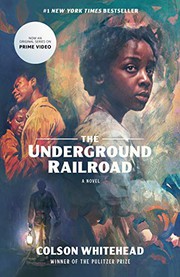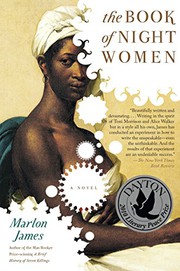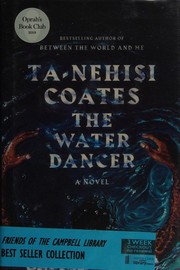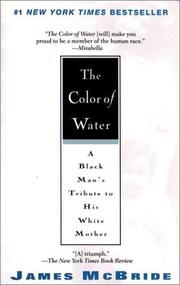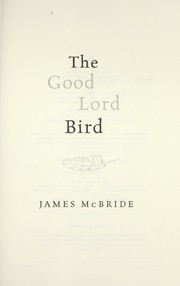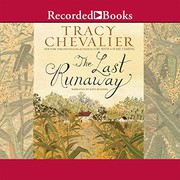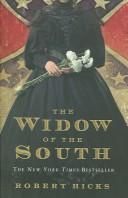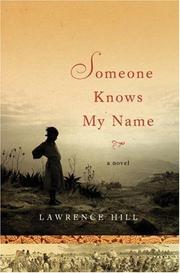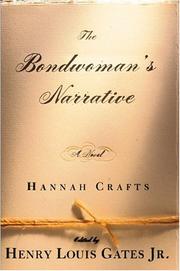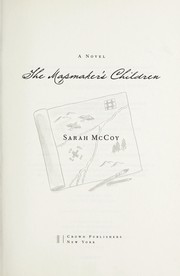Are you a fan of historical fiction and looking for a compelling read that delves into the harrowing and complex world of slavery? Look no further! We’ve curated a list of the 20 best books on slavery fiction that will transport you to different eras and perspectives, shedding light on the brutal reality of this dark period in history. From heart-wrenching tales of resilience to gripping accounts of freedom struggles, these slavery fiction books offer a powerful and thought-provoking exploration of human resilience and the fight for justice. Get ready to embark on a journey through time and emotion with these captivating reads.
Contents
- 1 20 Best Slavery Fiction Books
- 2 The Underground Railroad
- 3 Beloved
- 4 The Book of Night Women
- 5 The Invention of Wings
- 6 The Known World
- 7 Kindred
- 8 The Water Dancer
- 9 Homegoing
- 10 The Confessions of Nat Turner
- 11 The Kitchen House
- 12 The Color of Water
- 13 The Long Song
- 14 The Good Lord Bird
- 15 The Last Runaway
- 16 The Widow of the South
- 17 Someone Knows My Name
- 18 The Bondwoman’s Narrative
- 19 The House Girl
- 20 The Mapmaker’s Children
- 21 The Healing
- 22 Final Thoughts on Best Slavery Fiction Books
- 23
20 Best Slavery Fiction Books
The Underground Railroad
by Colson Whitehead
The Underground Railroad by Colson Whitehead is a gripping and powerful book about slavery fiction. It follows the story of Cora, a young slave who escapes from a Georgia plantation and embarks on a harrowing journey through the Underground Railroad, which is depicted as a literal network of underground tracks and tunnels. As she travels from state to state, Cora experiences the brutality and inhumanity of slavery, as well as the complexities of freedom and the price of pursuing it.
Whitehead’s evocative prose and vivid storytelling bring to life the horrors of slavery and the resilience of the human spirit. The book paints a haunting and visceral picture of the inhumanity of the institution of slavery, while also offering moments of hope and resilience. The Underground Railroad is a searing and unflinching portrayal of America’s dark history, and a testament to the indomitable will of those who fought for freedom. It is a must-read for anyone interested in slavery fiction books and a profound exploration of the human experience.
Beloved
by Toni Morrison
Beloved by Toni Morrison is a haunting and powerful book about slavery fiction that delves into the aftermath of the institution of slavery. Set in post-Civil War Ohio, the story follows Sethe, a former slave who is haunted by the memory of her dead daughter, known only as Beloved. As Sethe struggles to come to terms with her past, the novel weaves together themes of motherhood, trauma, and the lasting impact of slavery on individuals and communities.
Morrison’s prose is both lyrical and raw, painting a vivid picture of the horrors of slavery and its enduring legacy. The novel’s nonlinear narrative and use of magical realism create a sense of unease and tension, drawing readers into the emotional and psychological depths of its characters. Beloved is a book about slavery fiction that is both heartbreaking and profoundly moving, offering an unflinching look at the human cost of one of the darkest periods in American history.
The Book of Night Women
by Marlon James
The Book of Night Women by Marlon James is a powerful and gripping slavery fiction book that takes readers on a journey through the brutal and harrowing world of plantation life in 18th century Jamaica. The novel follows the story of Lilith, a young slave girl born into a life of suffering and oppression. As she grows up, she becomes involved in a plot to overthrow the oppressive system that enslaves her and her fellow women. James’ prose is raw and unflinching, immersing readers in the harsh realities of slavery while also shining a light on the resilience and strength of the human spirit. The novel delves into the complexities of power, race, and gender, offering a searing portrayal of the inhumanity of slavery while also celebrating the courage and determination of those who fought against it. The Book of Night Women is a haunting and unforgettable book about slavery fiction that will leave a lasting impact on anyone who reads it.
The Invention of Wings
by Sue Monk Kidd
The Invention of Wings by Sue Monk Kidd is a captivating book about slavery fiction that tells the story of Sarah Grimké, a young girl growing up in the pre-Civil War South. The novel explores the complexities of race, gender, and power as Sarah forms an unlikely bond with Handful, a slave gifted to her on her eleventh birthday. As they navigate the oppressive society of Charleston, South Carolina, the two girls develop a deep and enduring friendship that defies the norms of the time. Through their intertwining narratives, the novel delves into the harsh realities of slavery fiction, while also highlighting the strength and resilience of the human spirit in the face of adversity.
The Known World
by Edward P. Jones
The Known World by Edward P. Jones is a captivating book about slavery fiction that delves into the complexities of the antebellum South. Set in Virginia, the novel explores the lives of both enslaved people and their owners, shedding light on the intricate relationships and power dynamics that existed during this tumultuous time in American history. Jones skillfully weaves together the stories of various characters, offering a multi-dimensional portrayal of the institution of slavery and its far-reaching impact.
With lyrical prose and a keen eye for detail, Jones paints a vivid picture of the social, economic, and moral intricacies of a society built on the exploitation of human beings. The Known World challenges readers to confront the harsh realities of slavery while also illuminating the resilience and humanity of those who endured it. This slavery fiction book is a masterful exploration of a dark chapter in American history, offering a thought-provoking and poignant narrative that will linger in the minds of readers long after the final page.
Kindred
by Octavia Butler
Kindred by Octavia Butler is a compelling book about slavery fiction that weaves together the genres of science fiction and historical fiction. The story follows Dana, a young African American woman living in 1976 Los Angeles, who inexplicably time travels to the antebellum South whenever a white ancestor, Rufus, is in mortal danger. As Dana is repeatedly transported back to the brutal reality of slavery, she must navigate the complexities of her relationships with Rufus and other enslaved individuals, all while struggling to survive and find a way back to her own time.
Octavia Butler’s powerful narrative confronts the horrors of slavery and its enduring impact on American society. Through Dana’s experiences, the author skillfully explores themes of power, race, and identity, making Kindred a thought-provoking and emotionally charged slavery fiction book. This gripping and thought-provoking novel continues to resonate with readers, offering a unique perspective on the devastating legacy of slavery in the United States.
The Water Dancer
by Ta-Nehisi Coates
The Water Dancer by Ta-Nehisi Coates is a powerful and captivating book on slavery fiction that takes readers on a journey through the harsh realities of slavery in the American South. The story follows Hiram Walker, a young man born into bondage on a Virginia plantation, who possesses a mysterious power known as ‘conduction’ that allows him to transport himself and others through space. As Hiram navigates the treacherous world of slavery, he becomes involved in the Underground Railroad and embarks on a quest to rescue his family and find freedom.
Coates’ poignant and evocative storytelling brings to life the struggles and resilience of enslaved individuals, while also exploring themes of memory, identity, and the enduring power of hope. The Water Dancer is a thought-provoking and emotionally stirring book about slavery fiction that sheds light on a dark chapter of American history, leaving a lasting impact on its readers long after the final page.
Homegoing
by Yaa Gyasi
Homegoing by Yaa Gyasi is a captivating and powerful book on slavery fiction that follows the lives of two half-sisters, Effia and Esi, and their descendants over generations. Set in Ghana and America, the novel explores the lasting effects of slavery and colonialism on the lives of these two families.
Gyasi’s storytelling is both heartbreaking and hopeful as she delves into the experiences of each generation, highlighting the impact of slavery on their identities, relationships, and destinies. The novel’s rich historical detail and vivid characters bring to life the complexities of the transatlantic slave trade and its aftermath.
Through beautiful prose and a profound understanding of human resilience, Homegoing is a book about slavery fiction that offers a poignant and insightful exploration of the legacy of slavery. Gyasi’s novel is a deeply moving and essential read for anyone interested in the history and lasting impact of slavery on individuals and communities.
The Confessions of Nat Turner
by William Styron
The Confessions of Nat Turner by William Styron is a powerful and controversial book about slavery fiction that delves into the mind of Nat Turner, the leader of a famous slave rebellion in 1831. Styron’s fictionalized account of Turner’s life and the events leading up to the rebellion offers a thought-provoking exploration of the complexities of race, power, and human nature. Through Turner’s confessions, the reader is given a raw and intense look at the brutal realities of slavery and the deep-seated emotions that drove Turner to take a stand against his oppressors. Styron’s vivid storytelling and rich character development make this slavery fiction book a compelling and emotional read, forcing readers to confront the harsh truths of America’s dark history. The Confessions of Nat Turner is a must-read for anyone interested in delving into the complexities of the human experience and the enduring legacy of slavery in America.
The Kitchen House
by Kathleen Grissom
The Kitchen House by Kathleen Grissom is a compelling book about slavery fiction that takes readers on a gripping journey through the lives of Lavinia, an orphaned Irish immigrant, and Belle, the daughter of the plantation owner. Set in the 18th century, the novel vividly portrays the complexities of race, family, and identity in the antebellum South. Lavinia is brought to the plantation to work in the kitchen house alongside the slaves, blurring the lines between her own identity and that of the enslaved people she grows to love as family. As she navigates the treacherous social dynamics of the plantation, Lavinia becomes deeply intertwined with the lives of the slaves, including Belle, whose resilience and strength inspire her. Grissom’s powerful storytelling and rich character development make this slavery fiction book a poignant exploration of the human spirit, love, and the enduring legacy of slavery in America.
The Color of Water
by James McBride
The Color of Water by James McBride is a captivating memoir that delves into the author’s personal journey of self-discovery and understanding of his mother’s past. The book is a powerful exploration of identity, race, and family, as McBride recounts his upbringing in a mixed-race family and his mother’s experiences as a white Jewish woman raising her children in a predominantly black neighborhood. Through poignant and heartfelt storytelling, McBride unravels the complexities of his mother’s past, including her upbringing in the South during the era of segregation and her courageous decision to marry a black man. This memoir is a profound and moving portrayal of the enduring bond between a mother and son, as well as a thought-provoking reflection on the impact of race and heritage. With its rich narrative and emotional depth, The Color of Water is a must-read for anyone seeking a deeper understanding of the complexities of family, identity, and the human experience.
The Long Song
by Andrea Levy
The Long Song by Andrea Levy is a captivating and poignant book about slavery fiction that takes readers on a journey through the lives of the enslaved in 19th century Jamaica. The novel follows the story of July, a strong-willed and resilient slave who navigates the complexities of her world with both humor and heartbreak. Levy’s powerful storytelling immerses readers in the harsh realities of plantation life, while also shedding light on the strength and resilience of the enslaved people.
Through July’s narrative, Levy paints a vivid picture of the interconnected lives of the slaves and their masters, offering a thought-provoking exploration of power, oppression, and the enduring human spirit. The Long Song is a beautifully written slavery fiction book that delves into the complexities of race, class, and identity, while also celebrating the indomitable nature of the human soul in the face of adversity. This compelling and thought-provoking novel is a must-read for anyone interested in historical fiction and the enduring legacy of slavery.
The Good Lord Bird
by James McBride
The Good Lord Bird by James McBride is a captivating and humorous book on slavery fiction that follows the life of Henry Shackleford, a young slave who is mistaken for a girl by the legendary abolitionist John Brown. As they travel together, Henry, or “Onion” as he is known, witnesses Brown’s fervent crusade against slavery, even participating in the famous raid on Harpers Ferry. Through Onion’s unique perspective, the novel offers a fresh and entertaining take on the tumultuous events leading up to the Civil War.
McBride’s skillful storytelling and rich character development make this book about slavery fiction both thought-provoking and humorous, offering a fresh and engaging perspective on a well-trodden historical subject. The Good Lord Bird is a compelling and entertaining read that sheds light on the complexities of race, identity, and freedom during a pivotal period in American history. This slavery fiction book has received critical acclaim and won the prestigious National Book Award for Fiction, solidifying its place as a must-read for anyone interested in American history and the fight against slavery.
The Last Runaway
by Tracy Chevalier
The Last Runaway by Tracy Chevalier is a captivating book about slavery fiction that follows the story of Honor Bright, a young Quaker woman who leaves England for America in the 1850s. Set against the backdrop of the Underground Railroad and the Fugitive Slave Act, Honor finds herself caught in the midst of the tumultuous debate over slavery in Ohio.
As Honor becomes involved with helping runaway slaves find freedom, she is forced to confront the moral and personal dilemmas that come with defying the law and her own beliefs. The novel expertly weaves together themes of courage, love, and the fight for freedom, making it a compelling read for those interested in slavery fiction books.
Chevalier’s rich historical detail and vivid characterizations bring the story to life, immersing readers in Honor’s journey and the complexities of the time period. The Last Runaway is a poignant and thought-provoking exploration of the human spirit and the enduring legacy of slavery in America.
The Widow of the South
by Robert Hicks
The Widow of the South by Robert Hicks is a poignant and gripping book about slavery fiction set during the American Civil War. Based on a true story, the novel follows the life of Carrie McGavock, a woman who finds her world turned upside down as the war rages on. As the conflict draws closer to her home, Carrie’s plantation becomes a battleground, and she is forced to confront the harsh realities of war, loss, and the devastating impact of slavery fiction.
Amidst the chaos, Carrie makes a remarkable decision to turn her plantation into a makeshift hospital for wounded soldiers, regardless of their affiliation. Through this selfless act, she finds herself drawn into the lives of those she cares for and is faced with the harsh truths of the war. The novel explores themes of love, loss, and resilience in the face of adversity, offering a powerful and emotional portrayal of a woman’s journey through one of the most tumultuous periods in American history. Slavery fiction book enthusiasts will be captivated by Hicks’ vivid storytelling and the compelling characters that bring this historical period to life.
Someone Knows My Name
by Lawrence Hill
Someone Knows My Name, written by Lawrence Hill, is a powerful and compelling book about the experience of a young African woman, Aminata Diallo, who is captured and sold into slavery in America. The novel takes readers on a journey through Aminata’s life as she navigates the horrors of slavery and strives to retain her dignity and humanity in the face of oppression and violence.
Through the vivid and emotive storytelling, Hill brings to life the brutal reality of the transatlantic slave trade and the resilience of those who endured it. Aminata’s story is one of strength, courage, and the unbreakable human spirit, making this book about slavery fiction a deeply moving and unforgettable read.
As Aminata’s journey unfolds, readers are confronted with the harsh truths of history, while also being inspired by the resilience and determination of the human spirit. Someone Knows My Name is a compelling and essential read for anyone interested in the complexities of the human experience and the enduring legacy of slavery fiction.
The Bondwoman’s Narrative
by Hannah Crafts
The Bondwoman’s Narrative is a compelling and haunting book on slavery fiction that was written by Hannah Crafts, a formerly enslaved woman, in the mid-19th century. Craft’s manuscript was discovered in a New Jersey attic in the 21st century and was later confirmed to be the first known novel written by a female African-American slave.
The novel follows the story of a young woman named Hannah who escapes from a North Carolina plantation and embarks on a perilous journey to freedom. Through her eyes, readers are given a firsthand account of the brutal realities of slavery and the quest for liberation. Craft’s skillful storytelling and vivid descriptions offer a gripping portrayal of the hardships faced by enslaved individuals, as well as the resilience and courage that fueled their fight for freedom.
This groundbreaking book about slavery fiction provides a unique and invaluable perspective on the experiences of enslaved women, making it a must-read for anyone interested in the history of slavery in America.
The House Girl
by Tara Conklin
The House Girl by Tara Conklin is a captivating book on slavery fiction that weaves together the lives of two women from different eras. Josephine Bell, a young slave in 1852, dreams of freedom and secretly learns to read and write, while Lina Sparrow, a modern-day lawyer, is tasked with finding a plaintiff for a reparations lawsuit and stumbles upon Josephine’s story. As Lina delves into the past, she uncovers the truth about Josephine’s life and her connection to a famous painting. The novel explores themes of identity, legacy, and the enduring impact of slavery on individuals and society.
Conklin’s prose is rich and evocative, drawing readers into the lives of her characters and the complex history they inhabit. The House Girl is a poignant and thought-provoking book about slavery fiction that challenges readers to confront the legacy of slavery and its far-reaching effects. With its compelling narrative and powerful themes, this slavery fiction book is a must-read for anyone interested in historical fiction and stories of resilience and redemption.
The Mapmaker’s Children
by Sarah McCoy
The Mapmaker’s Children by Sarah McCoy is a captivating book about slavery fiction that weaves together the stories of two women living a century apart. Sarah Brown, the daughter of the famous abolitionist John Brown, is a passionate and determined character who becomes involved in the Underground Railroad. In present-day West Virginia, Eden Anderson discovers Sarah’s hidden diary and becomes consumed by her story, which in turn helps her confront her own struggles and desires.
McCoy skillfully intertwines the past and present, exploring themes of family, love, and the enduring legacy of slavery fiction. The rich historical detail and vivid characters bring the story to life, making it a compelling and emotional read. The novel sheds light on the resilience and strength of women in the face of adversity, and the ways in which the past continues to impact the present. With its blend of history and contemporary drama, The Mapmaker’s Children is a powerful and thought-provoking slavery fiction book that will stay with readers long after they’ve turned the final page.
The Healing
by Jonathan Odell
The Healing by Jonathan Odell is a captivating book about slavery fiction that delves into the complex relationships between slave and master, as well as the power dynamics that existed in the antebellum South. The story centers around Granada, a house slave with a special gift for healing, and her forbidden friendship with the master’s daughter, Polly. As tensions rise and the country teeters on the brink of civil war, Granada and Polly’s bond becomes a source of strength and hope in a world filled with oppression and cruelty.
Odell’s rich and vivid storytelling brings to life the harsh realities of plantation life, while also portraying the resilience and courage of those who fought against the injustices of slavery. The slavery fiction book is a powerful exploration of love, betrayal, and the enduring human spirit, making it a must-read for anyone interested in historical fiction that grapples with the complexities of America’s past.
Final Thoughts on Best Slavery Fiction Books
Exploring the complex and harrowing history of slavery through literature can be a powerful and enlightening experience. The 20 best books about Slavery Fiction offer a diverse array of perspectives and stories that shed light on this dark period of human history. From personal narratives to sweeping epics, these books vividly capture the realities of slavery and its enduring impact. Whether you’re a history buff or a fiction enthusiast, these books are essential reads that will challenge, educate, and inspire.
Which book about Slavery Fiction is best?
The best book on Slavery Fiction can vary with personal preference, but three widely recommended titles are:
- The Underground Railroad by Colson Whitehead,
- Beloved by Toni Morrison,
- The Book of Night Women by Marlon James.
Each offers valuable insights and could be a great starting point.
What are the best books to learn about Slavery Fiction?
For those looking to learn about Slavery Fiction, there is a wealth of literature that can provide a comprehensive understanding of the subject. Some of the most highly recommended books include:
- The Underground Railroad by Colson Whitehead,
- Beloved by Toni Morrison,
- The Book of Night Women by Marlon James,
- The Invention of Wings by Sue Monk Kidd,
- The Known World by Edward P. Jones,
- Kindred by Octavia Butler,
- The Water Dancer by Ta-Nehisi Coates,
- Homegoing by Yaa Gyasi,
- The Confessions of Nat Turner by William Styron,
- The Kitchen House by Kathleen Grissom
These books offer a range of perspectives on Slavery Fiction, covering various aspects and approaches to the subject.
What are the best books about Slavery Fiction?
The best books about Slavery Fiction are:
- The Underground Railroad by Colson Whitehead,
- Beloved by Toni Morrison,
- The Color of Water by James McBride,
- The Long Song by Andrea Levy,
- Homegoing by Yaa Gyasi,
- Kindred by Octavia Butler.
Each offers unique insights into the subject. While these books about Slavery Fiction are highly regarded, it’s important to note that any list of ‘best’ books is subjective and reflects a range of opinions.
What are the best Slavery Fiction books of all time?
Choosing the best Slavery Fiction books of all time can vary depending on who you ask, but five titles that are often celebrated include
- The Underground Railroad by Colson Whitehead,
- Beloved by Toni Morrison,
- The Known World by Edward P. Jones,
- Homegoing by Yaa Gyasi,
- and The Color of Water by James McBride.
Each of these books has made a significant impact in the field of Slavery Fiction and continues to be influential today.

